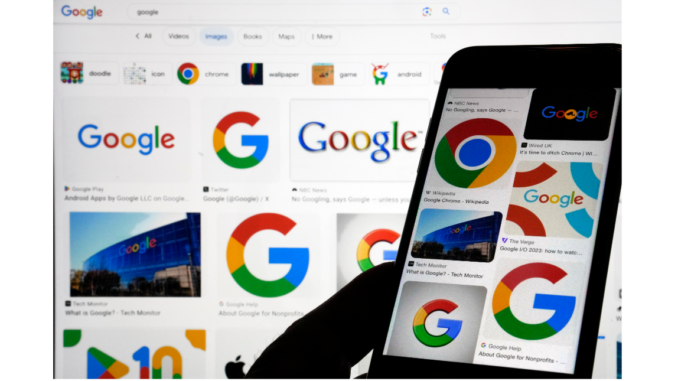
SAN FRANCISCO — Google went to appeals court Monday in an attempt to convince a three-judge panel to overturn a jury’s verdict declaring its app store for Android smartphones as an illegal monopoly and block the penalties imposed by a federal judge to stop the misbehavior. Cary-based video game maker Epic Games, which brought the case alleging Google’s Play Store has been abusing its stranglehold over the Android app market, countered with arguments outlining why both the verdict and punishment should be affirmed to foster more innovation and lower prices.
In a nearly hour-long presentation in San Francisco’s 9th Circuit Court of Appeals, Google lawyer Jessica Ellsworth explained why the company believes the judge overseeing a month-long trial in 2023 improperly allowed the market in its case to be defined differently than it had in a similar antitrust trial revolving around Apple’s antitrust trial in 2021.
Ellsworth also asserted the trial shouldn’t have been decided by a jury in the first place because Google exercised its consent to that process and demanded the case be decided by a judge instead, as had the trial by Apple.
Epic, the maker of the popular Fortnite video game, filed separate antitrust cases against Apple and Google on the same day in August 2020 and culminated in dramatically different outcomes. Unlike the jury in Google’s trial in San Francisco, U.S. District Judge Yvonne Gonzalez-Rogers largely sided with Apple in a 185-page decision that defined the Play Store and Apple’s iPhone app store as part of a broader competitive market.
Ellsworth told the appeals court that U.S. District Judge James Donato improperly allowed Epic to turn the Google trial into a “do-over” that excluded the Apple app store as a rival in the market definition that led to the jury’s verdict in its case.
“You can’t just lose an issue that was fully litigated the first time (in the Apple case) and then pretend it didn’t happen,” Ellsworth said. She said the competition that Google and Apple engage in while making the two operating systems that power virtually all of the world’s smartphones “sufficiently disciplines” their actions in the app market.
But the appeals judges indicated they believed the market definitions could differ in the separate app store cases because Apple bundles all its software and the iPhone together — creating what has become known as a “walled garden” — while Google licenses the Android software that includes its Play Store to a wide variety of smartphone makers.
“There are clearly some factual differences between the Android world and Apple world,” Judge Danielle J. Forrest told Ellsworth.
Judge Gabriel Sanchez also sounded skeptical about Google’s claims about being lumped with an improper market definition in its trial.
“Even if Google vigorously competes with Apple (in smartphone operating systems), that doesn’t mean it can’t create a different ecosystem where it’s a monopolist,” Sanchez interjected during Ellsworth’s presentation.
Epic attorney Gary Bornstein painted Google’s arguments as a desperate and unfounded effort to preserve the system that boosts Google’s profits with price-gouging commissions ranging from 15% to 30% on in-app purchases flowing from software downloaded through the Play Store.
The penalties that Donato imposed in October and subsequently postponed while Google pursues its appeal would impose a series of sweeping changes that include making the Play Store’s entire library of 2 million apps available to potential competitors — a move expected to result in lower commission rates.
The appeals court hasn’t set a timeline for issuing a ruling in the Play Store case, but it typically takes several months before a decision is reached.
In Monday’s two-hour hearing, Bornstein contended that Google never tried to define the Android app market during the trial the way it presented it during its appeal and reminded the three-judge panel that the bar should be set high before reversing a jury’s verdict and the ensuing punishment ordered by a lower court judge.
“The benefit of the doubt does not go to the wrongdoer,” Bornstein said.
The judges seemed more troubled by Donato’s decision to stick with a jury trial after the case changed shortly before the Epic trial when Google settled lawsuits brought by attorneys general across the U.S. and another prominent app developer, Match Group. An agreement for a jury trial had been reached when the attorneys general and Match cases were going to be combined with Epic’s, but Google wanted to revert to having a judge decide the outcome after settling some of the claims, only to be rebuffed by Donato.


